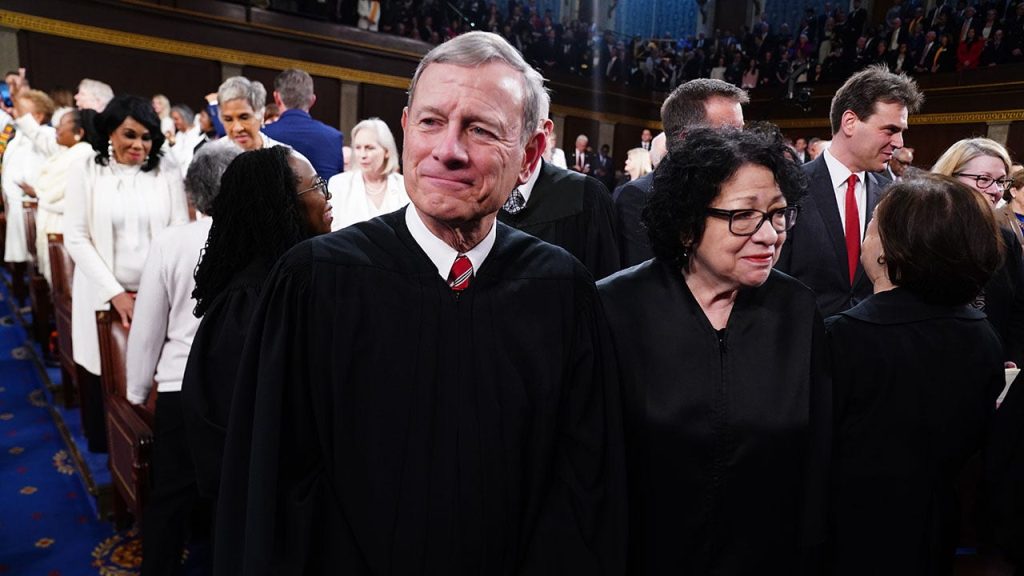Chief Justice John Roberts’s 2024 year-end report on the federal judiciary serves as a stark reminder of the vital importance of judicial independence in upholding the rule of law. Roberts underscores the inherent tension between the judiciary and other branches of government, noting that court decisions, by their nature, create winners and losers, often impacting executive and legislative power. While acknowledging that administrations inevitably experience setbacks in court, he emphasizes the crucial tradition of respecting and abiding by judicial rulings, a practice that has largely prevailed in recent decades, preventing the kind of constitutional crises that marked the mid-20th century.
However, Roberts expresses deep concern over the escalating trend of elected officials questioning the authority of federal courts and even suggesting outright defiance of their decisions. While refraining from naming specific individuals or parties, he warns that such rhetoric, however sporadic, poses a grave threat to the very foundation of judicial independence. Quoting the late Justice Ruth Bader Ginsburg, he highlights the vulnerability of an independent judiciary to societal pressures and emphasizes the collective responsibility to safeguard its integrity. Roberts’s appeal to all Americans to cherish and protect this foundational principle underscores the urgency of his message.
To further emphasize the delicate balance of power within the American governmental system, Roberts invokes the wisdom of Chief Justice Charles Evans Hughes, who stressed the necessity of interbranch cooperation for the effective functioning of a government designed to protect liberty through an impartial and independent judiciary. This interdependence, Roberts argues, is the bedrock of both the political system and the economic prosperity of the nation, highlighting the far-reaching consequences of eroding judicial authority. The chief justice’s report serves as a poignant reminder that the strength of American democracy rests on the unwavering commitment to the rule of law.
Roberts’s report comes against the backdrop of several high-profile Supreme Court decisions with significant political ramifications, including a landmark immunity decision that favored then-candidate Donald Trump and a ruling halting efforts to disqualify him from the ballot. These decisions, while hailed as victories by Republicans, drew criticism from Democrats, underscoring the increasing politicization of judicial rulings. The contentious issue of abortion further exemplifies this trend, with a lower court decision revoking FDA approval for the abortion drug mifepristone prompting calls from some lawmakers for President Biden to disregard the ruling. While Biden ultimately declined to bypass the court, the incident highlights the growing pressure on the executive branch to intervene in judicial matters.
The chief justice’s concern about threats to judicial independence is not limited to rhetorical challenges. He explicitly addresses the alarming rise in threats and violence directed at judges, citing U.S. Marshals Service statistics showing a threefold increase over the past decade. The tragic killings of state court judges in Wisconsin and Maryland serve as stark reminders of the real dangers judges face. Roberts denounces such acts of violence and intimidation as undermining the very foundations of the Republic. He also points to the insidious role of disinformation in eroding public trust in the judiciary, noting how social media can amplify distortions and even be exploited by foreign actors to sow discord. This multi-pronged assault on judicial independence, Roberts warns, demands a concerted effort from all segments of society to protect the integrity of the courts.
Roberts’s report echoes his previous interventions against perceived attacks on the judiciary. He notably rebuked President Trump in 2018 for criticizing a judge who ruled against his administration’s migrant asylum policy. Similarly, in 2020, he criticized Senate Democratic leader Chuck Schumer for remarks made during a high-profile abortion case. These instances demonstrate Roberts’s consistent commitment to defending the judiciary against what he views as inappropriate political pressure. As President Trump prepares for a second term with an ambitious conservative agenda likely to face legal challenges, the chief justice’s call for respect for judicial independence takes on added significance. His report serves as a timely reminder that the enduring strength of American democracy relies on the ability of the judiciary to function free from political interference and intimidation.















